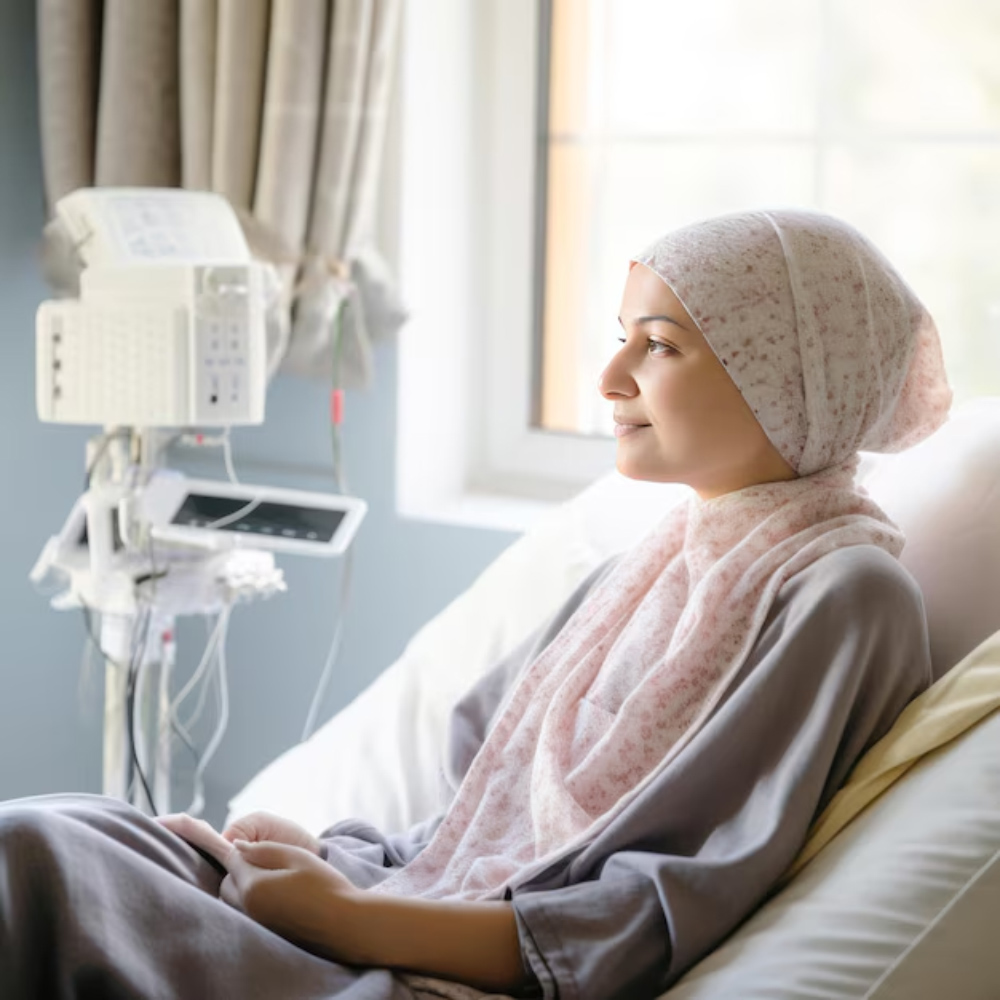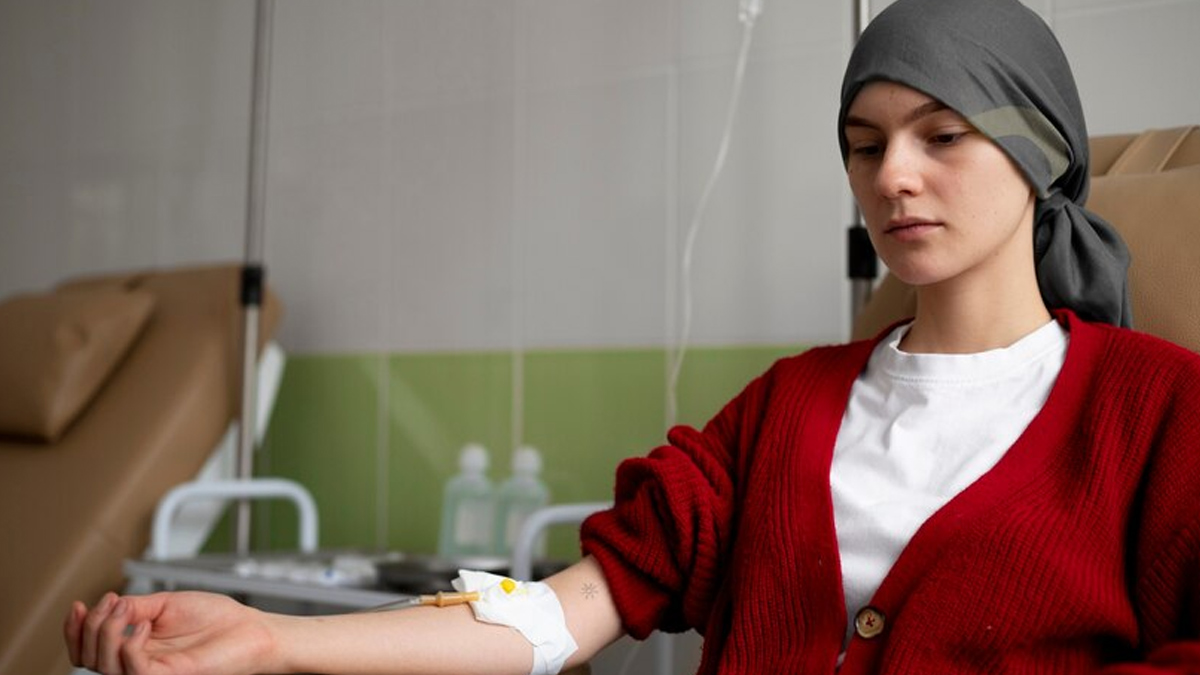
Cancer is one of the most complex diseases known to medicine, and no two cases are ever truly identical. Even when two individuals are diagnosed with the same type of cancer, their treatment plans can differ drastically. This is because a wide range of factors, from the cancer’s stage and genetic makeup to the patient’s age, overall health, and personal preferences, influence the approach to treatment. As medical science advances, precision oncology and personalised care have highlighted the need to move beyond a one-size-fits-all approach, ensuring that each patient receives a treatment plan tailored specifically to their needs.
To understand more about this, OnlyMyHealth team interacted with Dr Anjali Kulkarni, Vice President - RWE Strategy, Analytics and Oncologist, 4baseCare.
The Role of Patient-Specific Factors

“Cancer treatment is highly individualised and influenced by a variety of factors, reflecting the complexity and uniqueness of each patient’s condition,” says Dr Kulkarni. While the type and stage of cancer are critical determinants, other considerations such as age, weight, general health, and comorbidities significantly influence the course of treatment.
For instance, two patients with breast cancer might have different approaches depending on their overall health and specific cancer characteristics. A younger, otherwise healthy patient may tolerate aggressive chemotherapy better than an older patient with pre-existing health conditions. As Dr Kulkarni explains, “Cancer treatment recommendations depend on many factors. Especially in long and complex cancer treatments like chemotherapy, the age of the person, weight, and general health are equally important as the cancer stage and other comorbid conditions.”
Functional Parameters and Side Effects
Before initiating treatment, clinicians must evaluate a patient’s organ functions. “Some chemotherapy or immunotherapy drugs might cause serious side effects; hence checking all functional parameters of organs like kidney, liver, and heart is very important,” Dr Kulkarni emphasises.
For patients with compromised organ functions, safer drug options are chosen to avoid exacerbating existing issues. For example, a patient with reduced kidney function may not be suitable for certain chemotherapeutic agents and would require alternative medications.
The Impact of Cancer Stage and Patient Fitness

The stage of cancer, which indicates how much it has spread, often dictates the primary mode of treatment. Dr Kulkarni explains, “From a clinician's point of view, the stage of cancer, i.e., how much cancer has spread, is a decisive factor. Even if the same cancer is diagnosed, and one of the patients has a more advanced stage than the other, then treatments like chemotherapy are preferred over surgery.”
In some cases, patients may be unfit for surgery due to age, frailty, or other health concerns. For such patients, alternative options like radiotherapy or targeted therapies may be explored.
Precision Oncology: The Game Changer
The rise of precision oncology has revolutionised cancer treatment by incorporating genetic testing into care plans. “In the era of precision oncology, many cancer patients undergo genetic testing to identify specific mutations. Since each individual's cancer has a unique genetic profile, treatments are tailored accordingly,” says Dr Kulkarni.
For example, a patient whose cancer exhibits a specific mutation may benefit from a targeted therapy designed to act on that mutation, whereas another patient without the mutation would require a different approach.
Also read: Can Pimple Breakouts Be A Symptom of Skin Cancer?
Patient Preferences and Practical Considerations

In addition to medical factors, patient preferences and logistical considerations also influence treatment plans. “In current times, even patient choice for surgery or chemotherapy has influence on treatment recommendations. Many women prefer breast-sparing surgery rather than whole breast removal,” Dr Kulkarni notes.
Availability of drugs, financial constraints, and access to healthcare facilities also play a significant role. “Many times, the availability of drugs, financial status, and logistics of transport can influence the treatment choice. Oral cancer drugs at home over hospital-administered chemotherapy can be prescribed for older patients or those from remote areas,” she explains.
The Uniqueness of Every Cancer
Dr Kulkarni succinctly summarises the approach to cancer care: “Each cancer is unique, and the treatments are uniquely prescribed to best suit the individual patient.”
This individuality underscores the importance of a holistic approach to cancer treatment, where medical, genetic, personal, and logistical factors converge to craft the best possible care plan. As cancer research continues to evolve, the hope is that treatments will become even more refined and accessible, ensuring optimal outcomes for every patient.
By embracing the personalised nature of cancer care, clinicians can address not only the disease but also the individual living with it, offering a beacon of hope in an often challenging journey.
Also watch this video
How we keep this article up to date:
We work with experts and keep a close eye on the latest in health and wellness. Whenever there is a new research or helpful information, we update our articles with accurate and useful advice.
Current Version